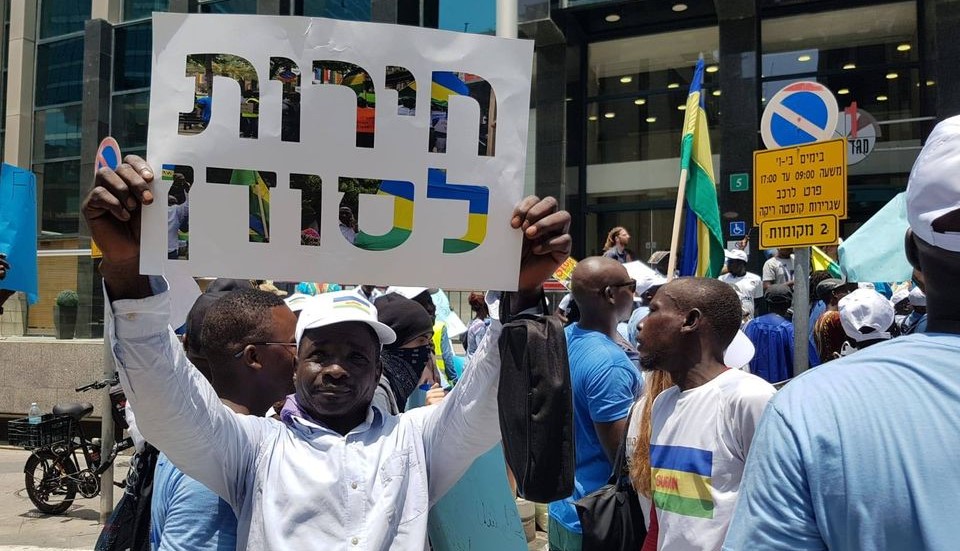As part of the normalization deal brokered between Israel and Sudan by US imperialism, the two client states are expected to discuss the fate of more than six thousand Sudanese asylum seekers currently living in Israel, with Israel’s far-right government drawing up proposals to deport the refugees back to their home country.

Sudanese asylum-seekers demonstrate in Tel Aviv in solidarity with the popular ongoing struggle for democracy in their country, June 2019. The sign in Hebrew held aloft reads “Freedom for Sudan.” (Photo: The Hotline for Refugees and Migrants)
United Nations High Commissioner for Refugees spokesperson said that there are around 6,500 Sudanese asylum seekers in Israel, with most of them coming from conflict-affected areas: Darfur, the Blue Nile region and the Nuba Mountains. The majority of them – together with their children born in Israel — are living in south Tel Aviv, and the state is reluctant to provide them with any kind of legal status or assistance. Following mass demonstrations in recent years, until now only about one thousand Sudanese asylum seekers have been granted some kind of humanitarian status as part of a government decision.
“It’s still too early to know the ramifications of the agreement” between Israel and Sudan, said the Israeli Hotline for Refugees and Migrants. “Even if Israel decides to deport the asylum seekers, the country will be obligated to examine the requests of every single potential deportee, which the state has refused to do for over a decade.” The Hotline for Refugees and Migrants issued a statement on Sunday, October 25, explaining that Israel currently has a non-expulsion policy for Sudanese asylum seekers and is obligated to rule on asylum applications submitted by Sudanese citizens. According to Israeli law, asylum seekers cannot be deported before there is a final ruling on their application.
“As of May 2018, asylum applications have been submitted by 5,119 Sudanese citizens, all of which are still pending,” the statement said. “Even if Israel chooses to repeal the non-expulsion policy for Sudanese asylum seekers, this change will not relieve the State of its obligation to rule on asylum applications submitted by Sudanese citizens.” “Politicians’ statements calling for the expeditious deportation of thousands of asylum seekers contradict the State’s own position…and are nothing more than a smokescreen designed to obscure the state’s obligation to review asylum applications once and for all.”
Usumain Baraka, a refugee activist from Darfur who has been living in Israel since 2008, told journalists, “People are saying that one of the first steps of peace is to deport Sudanese living in Israel back to Sudan.” “However, the situation there is the same as before. People are dying every day. The war and genocide continue. For us, going back is not an option.”
While Israel has in the past cited the principle of non-refoulement, the practice of not forcing refugees or asylum seekers to return to a country in which they are liable to be subjected to persecution, for its agreement not to forcibly repatriate asylum seekers from Eritrea, with Sudan the official position until now has been that the absence of diplomatic relations between the countries prevents Israel from deporting Sudanese nationals. However, now that diplomatic relations are to be established between the two states, the door may be opened for Israel not to apply its own Eritrean precedent of non-refoulement to the more than six thousand Sudanese asylum seekers residing within its borders.
Related: Posts on Sudan and Sudanese asylum-seekers living in Israel


